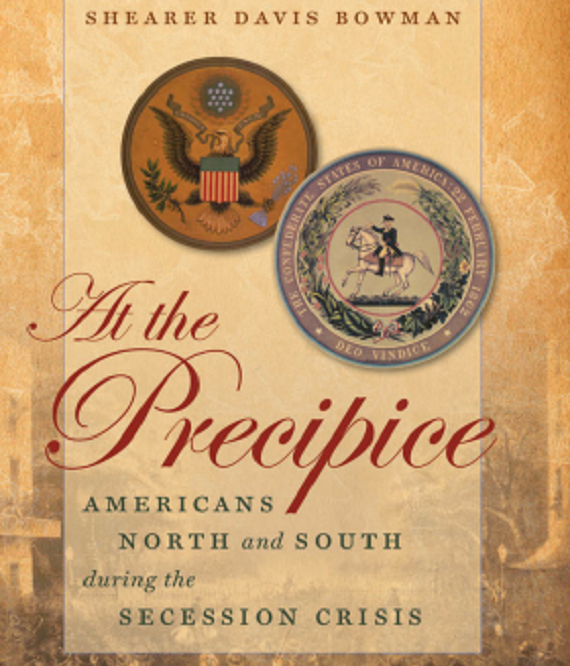
A review of Shearer Davis Bowman, At the Precipice: Americans North and South during the Secession Crisis, (University of North Carolina Press, 2010).
Shearer Davis Bowman presents a comprehensive view of the events leading to the secession of the southern states. Bowman (p. 12) explores “what Americans on the eve of the Civil War believe[d] about themselves and the world around them.”
One of the great strengths of the book is that Bowman includes perspectives from people from multiple backgrounds: northern and southern, famous and obscure, wealthy men and yeomen, men and women. The result is a fairly balanced and comprehensive narrative, not the usual morality tale of good northerners and bad southerners. Bowman notes (p. 64) that historian Robert Cook observed that white Iowans “had little affection for slavery, but even less for black people themselves.”
Bowman argues that this applies to white northerners in general. Bowman cites Edward L. Ayers’ comparative study of Augusta County, Virginia and Franklin County, Pennsylvania, in which Ayers observes that “despite the high-flying rhetoric about justice,” neither the Democratic nor the Republican Party “displayed any sympathy toward their black neighbors.”
Bowman explains the blundering generation thesis (p. 30), when he writes that:
More @ The Abbeville Institute

No comments:
Post a Comment